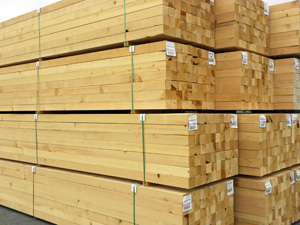 Clarification of ‘proportionate’, ‘appropriate’, operator obligations and ‘negligible risk’.
Clarification of ‘proportionate’, ‘appropriate’, operator obligations and ‘negligible risk’.
EUTR Recital (16)
On the basis of a systemic approach, operators placing timber and timber products for the first time on the internal market (1)should take the appropriate steps in order to ascertain that illegally harvested timber and timber products derived from such timber are not placed on the internal market. To that end, operators should exercise due diligence through a system of measures and procedures to minimise the risk of placing illegally harvested timber and timber products derived from such timber on the internal market.
EUTR Recital (17)
The due diligence system includes three elements inherent to risk management: access to information, (1)risk assessment and mitigation of the risk identified. The due diligence system should provide access to information about the sources and suppliers of the timber and timber products being placed on the internal market for the first time, (2)including relevant information such as compliance with the applicable legislation, the country of harvest, species, quantity, and where applicable sub-national region and concession of harvest. (2)On the basis of this information, operators should carry out a risk assessment. Where a risk is identified, operators should mitigate such risk (3)in a manner proportionate to the risk identified, with a view to preventing illegally harvested timber and timber products derived from such timber from being placed on the internal market.
Commentary
Under the EUTR it is the ‘operator’ who is responsible for the development and application of their due diligence system and the operator who will ultimately be EUTR compliant, not the products and, for non-EU countries, not the producer.
(1) Under the EUTR the operator should take the appropriate steps in order to ascertain that illegally harvested timber and timber products derived from such timber are not placed on the internal market. One of those steps is risk assessment; when the operator’s risk assessment identifies ‘negligible risk’ the ‘appropriate steps’ are quite different from when the operator’s risk assessment identifies ‘significant risk’.
By placing demands on companies exporting wood, or products made using that wood, harvested where there is negligible risk of illegal logging to physically provide information which goes excessively beyond what can be described as ‘proportionate’ to the risk, seemingly to ‘pass on’ their liabilities to other than themselves or to effectively absolve themselves from their obligations under the EUTR, an operator is demonstrating either that they do not understand what are their obligations under the EUTR or they are not appropriately meeting their due diligence obligations.
That wholly inappropriate and inadvisable approach also suggests that operators are under the impression that the information is required on a shipment by shipment basis. That is incorrect. The operator has only to ensure that, in their due diligence system, they have put in place measures and procedures which provide access to the necessary information, on-going assessment of which, as part of due diligence obligations, is required generally on an annual basis or when changes take place which might necessitate reviewing more frequently.
(2) On the basis of this information i.e. “including relevant information such as compliance with the applicable legislation, the country of harvest, species, quantity, and where applicable sub-national region and concession of harvest”.
An operator carrying out appropriate due diligence based on relevant information should be able to ascertain from that information whether or not applicable legislation is being applied in the countries of harvest from which they wish to import timber or wood products. If that information clearly indicates that harvesting is carried out in accordance with applicable legislation then that constitutes ‘legally harvested’ as defined in EUTR Article 2(f). Relevant information is also available with which an operator can ascertain the level of risk associated with countries of harvest.
When applying due diligence appropriately, utilising information sources to establish that a country has been identified independently as ‘low risk’, that those same countries have been identified as ‘legally harvested’ and that the risk of illegal logging does not vary between sub-national regions or concessions of harvest in that country, the operator should then base all the remainder of their due diligence on the basis of ‘negligible risk’.
(3) in a manner proportionate to the risk identified and from EUTR Article 6 (c) ‘except where the risk identified in course of the risk assessment procedures referred to in point (b) is negligible …’
In that situation, i.e. ‘negligible risk’, most, if not all, of the remainder of the information required to be made available by the operator in order to demonstrate appropriate due diligence under the EUTR is already provided in customary contractual documentation.
It is also worth remembering:
EUTR Recital (18)
In order to avoid any unnecessary administrative burden, operators already using systems or procedures which comply with the requirements of this Regulation should not be required to set up new systems.
Many, maybe even all, companies importing wood and wood products from countries where there is negligible risk of illegal logging may possibly find, if they look at this in light of the above, that they already have in place all they need in order to carry out, and demonstrate that they have, due diligence in the appropriate manner.
Note: Commentary in italics with EUTR in normal text.

